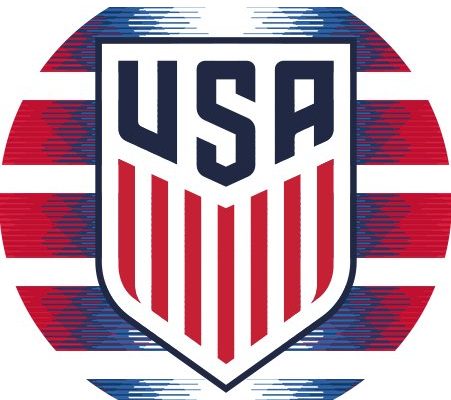By Charlie Inverso
Special Correspondent
With the United States noticeably absent from this year’s World Cup for the first time in decades, U.S. soccer has come under fire from various sources. Rider University coach Charlie Inverso, a previous U-14 National Coach who has guided the Broncs to two NCAA berths in the last three years (and won five national championships with Mercer County Community College), is exclusively providing Fish4scores with his thoughts on just where U.S. soccer is at these days. It may not be as bad as people think.
Seems like everyone has an opinion about soccer during the World Cup. Some people’s viewpoints are right on the money and other are a little daft, particularly when it comes to soccer in America. We also live in an era where we have access to almost unlimited blogs, radio sports talk and highlight shows. Most of these outlets are filled with a wide range of opinions about soccer in the United States.
So before you accept sentiments from Skip Bayless or Michele Beadle about soccer (particularly in our country) I thought I would give it a shot to share some of my opinions.
It’s not just about the World Cup
It’s important to mention that soccer success is not always determined by how you do at the World Cup.
International results are important but they are not the only criteria for a country’s status as a good “soccer nation.” I am referring to the overall state of the sport in a particular country. For example, in 2002 the US reached the quarterfinals of the World Cup and outplayed second place Germany but we still could not be considered a top tier soccer nation.
Here are what I consider the most important benchmarks (besides international results) for judging just how your country rates as a soccer nation.
A) How good and how deep is the talent in your player pool?
*How many players from your country are on a roster of club ranked in the top 40 in the world?
*How do you measure up against other countries in terms of the sheer number of quality players developed in your country? If I am, for example rating the player pool from a good soccer nation such as Columbia how does their top 50 players rank against the top 50 players from a Top 5 soccer nation such as Spain or Germany?
‘Using these two criteria The US still has a long way to go still has a long way to go before we are close to being an elite soccer nation.
B) What is the quality of your youth system/player development system?
This is such an intense and emotional topic of discussion that I would just choose to say that we could be doing better. It is unacceptable to think that in a country with our resources that we should not have one of the best developmental systems in the world.
C) Quality of Domestic League
I think Major League Soccer (MLS) is a pretty good league and it keeps getting better. Attendance is good (comparable to NBA and NHL) and there are a lot of good American coaches and players. We still have a long way to go but the MLS is something that gives us reason for optimism.
D) Fan Passion
I think of the four listed criteria, I believe this is our greatest strength. New Jersey and a few other select sections of the U.S. have always been areas loaded with fervent soccer fans. Passion for the game used to be limited to certain regions but now there is a true national interest in the sport, particularly when it is a good level of play. Greg Busch, my sport administrator at Rider, recently attended an NCAA convention in Atlanta. He was astounded by how much soccer talk there was in a town that has always been old school football country.
Take notice of how many kids are wearing Barcelona jerseys or how stadiums sell out across the nation when a world power like Manchester United tours in the summer. Simply put, if it is a good level of soccer, American fans will watch.
There are huge numbers of casual fans in the U.S. who will watch top quality games like the English Premier League, Champions League or World Cup. There is only one way for the sport to attract more ‘casual fans’ to the game and that is for us to develop better players here in the US. If we don’t and the number of casual fans does not increase, it is our own fault.
Weighing in on “The best athletes don’t play soccer in the U.S./Can you imagine if LeBron played soccer?” argument
My response would be A) 80 percent agree and B) That makes no sense.
I just love this debate. I hear it at least three times a week. I have been thinking about this topic for so many years and here is what I believe.
If LeBron James started playing goalkeeper at age 10 or 11 and was coached properly, I would think he would be a pretty damn good keeper. However, if he were a field player there is one important aspect that seems to be forgotten. How do we know LeBron would have good feet? Regardless of athletic ability, a high level soccer player must have good feet and that is a skill that is not guaranteed to anyone even those with world class speed, strength or vertical leap.
With regards to the best athletes playing soccer in America, I would say, like every sport, there is a different type of athletic ability that is needed to be a great soccer player.
Nigeria has an entire roster of powerful, swift runners with insane jumping ability. But that is just one type of quality soccer athletic set.
Balance, running ability (both short and long runs) and a good center of gravity are also mandatory for a good soccer player. But like every sport there are other athletic talents that are more soccer specific. Speed, power, and jumping ability can make up for some shortcomings as a player (even skill) but all top level players must have vision, agility and coordination. They must also have the ability to mentally process things quickly and a fast decision making ability. Players must make hundreds of split second decisions in 90 minutes; and top players must be able to stay alert and focused for long, often interrupted periods of time. Because there is no equipment in a high contact sport and that the average player runs between 7-9 miles in a game a great player must also have the ability to stay injury free.
Good feet, coordination/perception between the eyes and the feet and, of course, technical ability are paramount and will be discussed in another article. Christiano Ronaldo and Lionel Messi are considered the two best players in the world but are vastly different as athletes. When tested a few years ago, sport science coaches deemed Ronaldo a world class athlete. While Messi would not test nearly as well on a battery of physical tests it would be foolish to think he is not a tremendous athlete. He possesses balance, vision and a speed of thought almost never seen before.
If we are to produce better players in this country we definitely must find youngsters who possess these aforementioned athletic abilities.
I believe that people involved with youth soccer who really care about the sport should make a strong effort recruit the best athletes (kids who are multisport athletes with the athletic talents mentioned) at a very young age. The Trenton area from the 1960s-1980s was one of the top soccer hotbeds in the nation because it was the in-thing to do, which in turn drew the best multisport athletes.
We don’t have enough skillful, technical players
Mike Matkovic is one of the top youth coaches in the country and the former U-18 national team coach. He is one of the most intense, candid and colorful characters I have ever known. I have dubbed him with the nickname “Chicago’s Maynard” (after the late, great Maynard Welsh) which should help provide an insight into Mike’s personae. “Matko” always calls me after a US National team game and never fails to drive home the point of emphasis “we are not technical enough.” He is right on the money and I will expand on this topic in the next article.
Bruce cannot be your excuse
Sports fans often have short memories. Did Bruce Arena fail to qualify us for this year’s World Cup? Yes. But let’s stop using him as an excuse for our shortcomings.
Arena was called in to clean up an oil spill and nearly pulled it off. Was I shocked he didn’t get us to the World Cup? Yes, and so was he and would be the first to admit it.
However, let’s not forget this was a coach, who won five national championships at Virginia by playing an attacking, possession style of soccer. And this was when college soccer was the only game in town. He then went on to use that same style to win the first two ever MLS titles. After that, he took the U.S. to its greatest showing ever in the World Cup, won two Gold Cups, he won two MLS cups with DC United and another three MLS Cups with the LA Galaxy.
Sadly, what happens in the U.S. to coaches like Arena is their knowledge and experience is under-utilized. In every other country in the world, the most experienced coaches are employed as consultants and get emeritus type status.
Here we cast them aside to make room for the new age of wonder boys with the latest jargon and tactics that seem to work for other nations but not for the United States. We should be begging Arena (and soon) Dave Sarachan and others to share their expertise with us
The fact that we rarely consult with Manfred Schellscheidt, the most influential coach ever in the U.S., makes me very sad.
Flopping and faking injuries should not detract from the beautiful game
There are unsportsmanlike actions in every sport that shouldn’t be part of the game, and I dont like it either. I love basketball and football but I don’t like all of the trash talking that goes on. Don’t let the flopping take away your enjoyment of the game.










